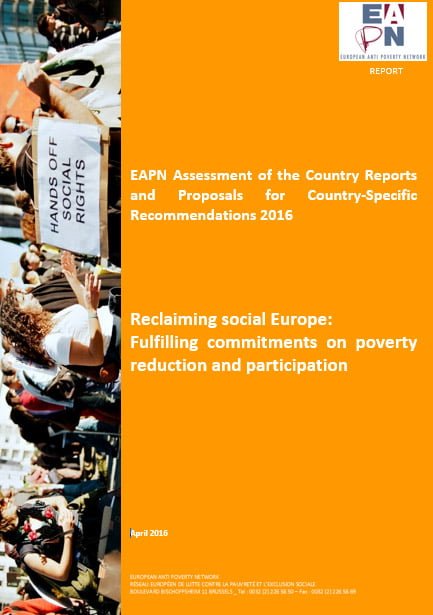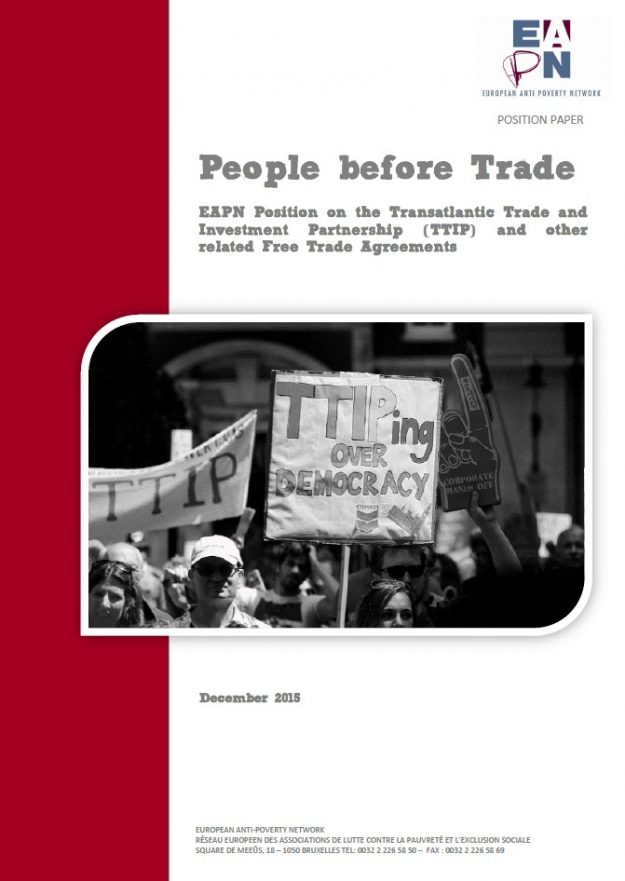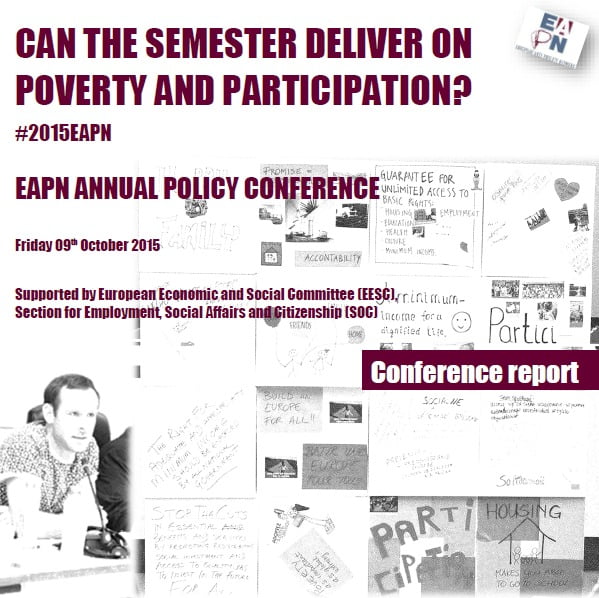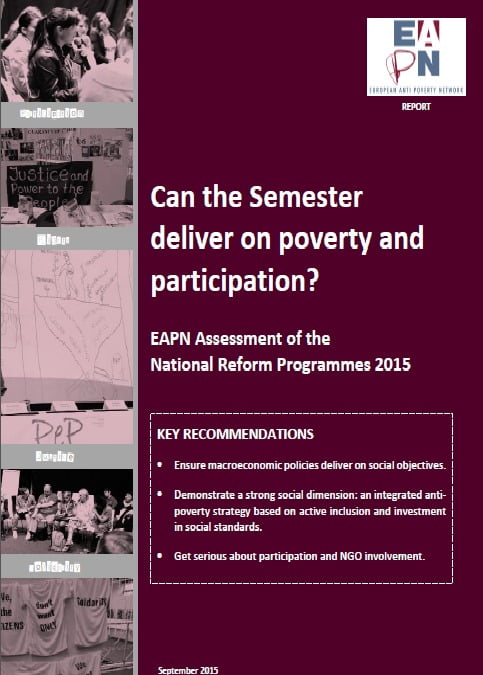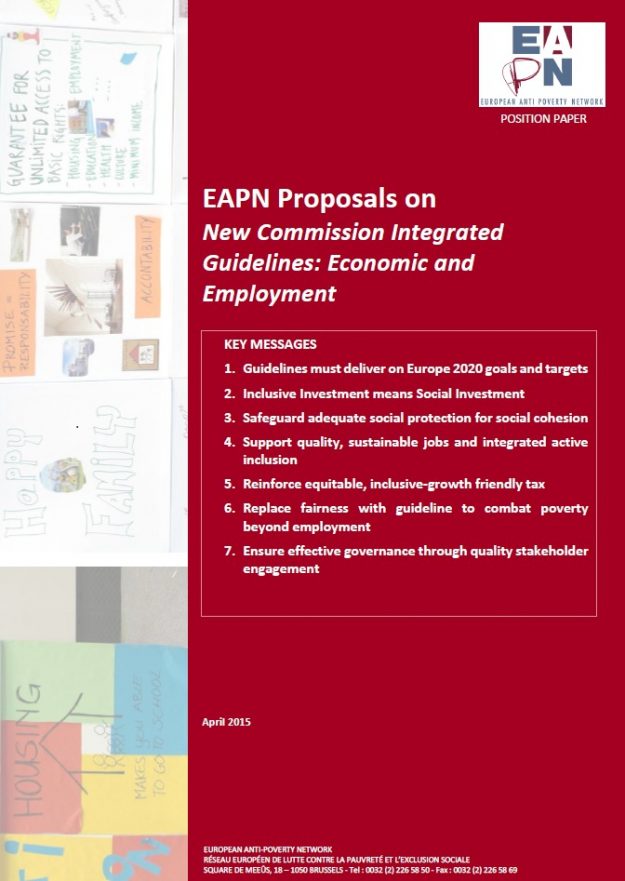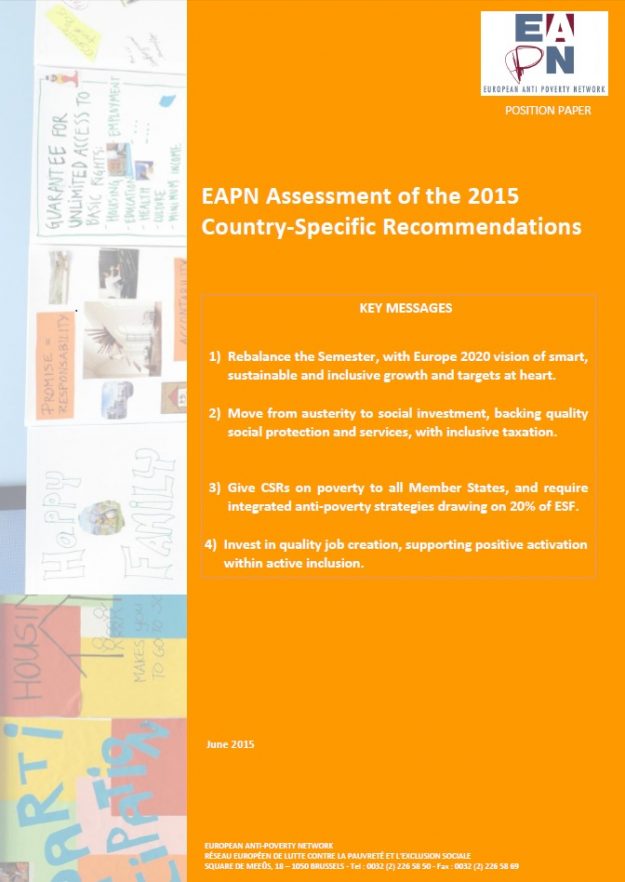The latest one:
EAPN letter to the EPSCO Council: Put People and Respect for the European Social Model first
Ahead of the Employment, Social Policy, Health and Consumer Affairs Council (EPSCO) on 9-10 March 2009, EAPN has written to the Ministers regarding the impact of the crisis on people in poverty and anti poverty organisations. In their letter, EAPN puts forward short and long term proposals to ensure that the needs of people experiencing poverty are included in the response to the crisis.
Download the letter: English – French – Spanish
Other EAPN policy papers on…
Social Inclusion
Building Security, Giving Hope: EAPN Assessment of the National Strategic Reports on Social Protection and Social Inclusion (2008-10) Read
Read more
Employment
EAPN Letter to EAPN to EU Ministers of Employment: “The adequacy of Minimum Income Schemes is a key way to address the economic crisis” Read
The Lisbon Strategy
>>Will the economic crisis force a stronger social pillar in Lisbon? EAPN Social Inclusion Scoreboard on the National Reform Programmes (2008-10) Read
Structural Funds
Services
Participation and civil Dialogue
{Jathumbnail}26/04/2016 – EAPN presents its full assessment of the 2016 Country Reports, released on 26 February 2016, and puts forward proposals for Country-Specific Recommendations (CSRs), based on inputs from National Networks European Organisations in our membership. EAPN wants the European Semester to deliver results on the Europe 2020 goals of inclusive and sustainable growth, and to deliver on its target to reduce poverty by at least 20 million by 2020.
{Jathumbnail}21-03-2016 – Today EAPN released its Barometer Report – Monitoring the implementation of the (at least) 20% of the European Social Fund that should be devoted to fight against poverty during the period 2014-2020 at a side-event organised by EAPN at the Annual Convention for Inclusive Growth 2016. The aim of this report is to carry out an initial monitoring of:
- The implementation of the 20% earmarking of ESF on social inclusion and poverty reduction, in terms of spending, quality of delivery and impact;
- The quality of the delivery on partnership with civil society, monitoring the code of conduct on partnership, and as partners in delivery.
17/12/2015 – This paper outlines, in brief, the position of the European Anti-Poverty Network (EAPN) regarding international trade agreements currently being negotiated by the European Commission, on behalf of Member States, to promote free trade. It looks specifically at negotiations on agreements such as CETA, TTIP, TiSA, and tries to point out the potential consequences of these agreements, in their current form, on poverty and social exclusion in European countries.
EAPN’s Annual Policy Conference (09/10/2015), held in partnership with and hosted by the European Economic and Social Committee (EESC), built on EAPN’s Assessment of the 2015 National Reform Programmes, giving evidence that poverty and participation must be put at the heart of the European Semester.
09/10/2015 – Today EAPN released its EAPN Assessment of the National Reform Programmes 2015 – Can the Semester Deliver on Poverty and Participation? at its Annual Policy Conference held in partnership with and at the premises of the European Economic and Social Committee (EESC). The report, strongly welcomed by the attendance including high-level representatives, provides a synthesis of EAPN members’ assessment of the 2015 National Reform Programmes. Each of the 21 National EAPN Networks have assessed on how far the NRPs are delivering on the social targets of Europe 2020 (particularly the poverty target, but also the employment and education targets) and on the effectiveness of civil society stakeholders’ engagement with the governance process of the Semester and Europe 2020. The report consequently draws 3 main messages.
02/02/2015 – As part of the ‘DRIVERS for Health Equity’ project, EAPN published a report and synthesis of case-study evidence on income and social protection, which is a joint EAPN and Centre for health Equity Studies (CHESS) work. Authored by Fiona McHardy with Olle Lundberg, this research undertook a case study approach exploring in a comparative country context, the impact of social protection system, both operations and provisions, on health inequality, in Hungary, Poland, UK, Sweden and Portugal. The publication also includes a Toolkit on how to develop focus groups (Annex 2).
12/04/2015 – EAPN has issued its Proposals regarding the new European Commission’s Integrated Guidelines in the economic and employment fields. This 6-page document summarises the new guidelines, their potential and shortfalls as well as a set of 7 recommendations: 1) Guidelines must deliver on Europe 2020 goals and targets, 2) Inclusive Investment means Social Investment, 3) Safeguard adequate social protection for social cohesion,
27/07/2015 – EAPN has released its briefing on Juncker’s EU Investment Plan and the European Fund for Strategic Investment (EFSI). As a consequence of the economic crisis, the level of investment in the EU has dropped significantly since its peak in 2007, by about 15%. The former Barroso Commission had been characterized by the austerity era, where fiscal consolidation has been over prioritized at the expense of investments, including social investment. Although the current Juncker Commission is composed by the same political coalition, the urgency of a response in terms of investment to the consequences of the economic and financial crisis seems to have become more prominent.
12/05/2015 – EAPN submitted today its contribution to the European Commission’s consultation regarding the provision of services to long-term unemployed in the Member States and at EU level. In its response, EAPN highlights that the long-term unemployed cannot be regarded as a homogenous group, and a one-size-fits-all approach will not yield the expected results.

